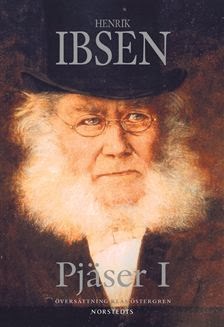 The phrase ”Loneliness seems to be such a painful, frightening experience that people do practically everything to avoid it” is marked in one of the psychiatrist Frieda Fromm - Reichmanns books. The person reading the book would be the cause of the justice scandal of the century, perhaps in the history of the Swedish justice system.
The phrase ”Loneliness seems to be such a painful, frightening experience that people do practically everything to avoid it” is marked in one of the psychiatrist Frieda Fromm - Reichmanns books. The person reading the book would be the cause of the justice scandal of the century, perhaps in the history of the Swedish justice system.Sture Bergwall, alias Thomas Quick, confessed to 39 murders, and was convicted of eight of them. The journalist Hannes Rådstam suspected that he was innocent of not merely one, but all of them, and when he got the truth from Quick he knew he was onto something incredibly big. Unfortunately, he died a while later, before finishing the book. The journalist Dan Josefsson picked up where Rådstam left off, and dedicated this book to him.
With a hidden agenda Josefsson entered a strange world. A cult. The people working with Quick in therapy were so convinced about their psychiatric theory that any critique about it led to immediate exclusion from the group. Apparently, the theory was that almost every person seeking therapy is in fact a victim of child sexual abuse, even though there are no memories of - and nothing indicates - such a thing. Being a lonely man and realizing that he, for the first time in his life, could be a part of a group of people, and furthermore, that he would be getting more benzodiazepines, Quick - already being in psychiatric care for sexual assault and robbery - had had an idea back in 1993. He began to "recall" memories about sexual abuse, murder and cannibalism in his early childhood, and later on, he recalled he had committed murders in his adult life - things that would make sure he never had to leave his comfortable life in the psychiatric unit. Perhaps, he even began to believe his own words when handled by the psychiatrists.
The psychiatrists' urge to get Quick to confess murder after murder, and dismiss the obvious faults and gaps in his confessions - just to confirm their theory - and the blindness of the police, attorney, prosecutor is really worrying. Behind them all was an elderly psychiatrist called Margit Norell, a person of great integrity and ability to "persuade", even brainwash, a great number of people with a theory that wasn't even scientifically proven.
The worst problem is that this happened in modern time, within a judicial system with apparent flaws. Or, perhaps, there's nothing wrong with the system, only its members. Quick is now freed from all murders and a commission is investigating the verdicts.
The psychiatrists that have destroyed many peoples lives and hindered many murder investigations are still working today. How many people brainwashed and how many murderers are free because of them are not known.





